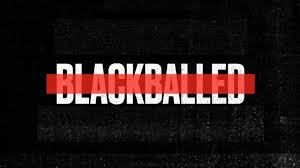Somebody sent me this article from Ha-Aretz. As a non-subscriber, I cannot identify its author to give him or her due credit, but its a fine piece of thought. A few comments, edited considerably due to the length of the article, help match the suggestions with my own reality.
Ha-Aretz Furrydoc
Death of the Traditional non-Traditional synagogue
It is no secret that the traditional synagogue model is showing signs of age: Over the past two decades, membership has declined across the United States, forcing many synagogues to merge and even to close for good.
And mine's not too far off.
<snip>
One popular target is the traditional dues model that most synagogues today utilize as the backbone of their financial model. This model, which was developed and has been left largely unchanged since before World War II, stipulates a set fee that would-be congregants must pay in order to become a “member” of the community. Membership, in turn, grants the individual (and his/her family, if relevant) certain rights and privileges within the congregation.
<snip>
Members are free to utilize the services and programs offered by the synagogue as much or as little as desired or necessary, and are similarly free to participate in congregational life and leadership if they so choose.
Depends where. Some places are still vibrant enough with kingmakers sufficiently secure, to make some elements of participation by invitation only.
Critics of this model often point to the high cost of dues at the typical synagogue, arguing that many American Jews struggle to afford them and, moreover, that many do not affiliate because of the expense. More to the point, critics of the traditional dues model point out that many Jews feel the expense of membership far exceeds the benefits. Considering that most synagogue members only attend their temple on the High Holy Days, and rarely if ever utilize the other benefits of membership or participate in synagogue leadership (especially after the last child has his or her bar or bat mitzvah), they might rightly ask what they are receiving for their two grand (or more) per year.
Not a great consumer purchase. Yet Orthodox congregations continue to have a commitment from their communities, people who utilize the synagogue regularly, lower expenses and lower dues. These folks get stung financially by day school tuition.
<snip>
For these reasons, there has been a growing movement in the
American Jewish community for synagogues to change their financial model. Advocates for change usually advance a voluntary-giving model of one kind or another, While there are a number of different versions of voluntary-giving structures (many of which are analyzed in detail in the exceptional new book "New Membership & Financial Alternatives for the American Synagogue" by Rabbis Kerry and Avi Olitzky (Jewish Lights, 2015)), they all more or less advocate decoupling membership from financial obligation. Membership is free, universal giving is encouraged.
It's hard to get away from the reality of needing secure funding, if not only to meet expenses, but even to be able to budget and set priorities.
<snip>
At the moment, my synagogue is one such congregation. Over the past year, a team of thoughtful and sensitive leaders was tasked with studying and analyzing these alternative models in order to determine whether changing to a new model would be right for our community. Ultimately, they concluded that the risks outweighed the potential rewards, and as people who cared about the congregation’s long-term future, they could not recommend a change.
As this taskforce presented its findings to me and our congregation’s “visioning” committee, I was disappointed. Years of studying the sociological trends and organizational best-practices had led me to conclude that voluntary-giving models were the wave of the future, not only because they were more in sync with the zeitgeist, but also because they were more in line with Jewish values of communal inclusion.
I'm not at all convinced that Jewish organizations ever really had Jewish values and communal inclusion as its sine qua non. Neither was Amos or Isaiah.
But as the conversation progressed, something dawned on me: the major flaw in the traditional model is not necessarily the fixed cost typically associated with membership but, rather, the notion of membership itself. Voluntary giving systems will ultimately be ineffective unless they address the fundamental flaw inherent in the traditional membership model. Similarly, congregations unwilling to part with a traditional dues system can yet remain relevant, vital, and vibrant, so long as they address this flaw.
If they have money, they don't need members. There are synagogues with large endowments that function this way, including two of my former places that held on long after membership dues could not meet even minimal expenses.
How did I arrive at this conclusion? The more I heard the word “membership,” the more I realized that it is an inherently transactional term. A member of an organization is typically one who pays some sort of premium in order to receive certain benefits that organization provides at no additional cost. It is, therefore, the very definition of fee-for-service. Consider the things we are members of today: I’m a member of my gym, of Costco, of Netflix and Amazon Prime. The one thing all of these memberships have in common is that I am a regular consumer of their products and services. The membership premium makes sense so long as I remain a regular customer.
And the people who run these places have the saichel to entice their customers' participation, my synagogue's poobah's don't. They've not really invited anybody personally to participate other than broadcast offerings. It's more akin to building a public trough for hungry snouts to sift through.
Synagogues, however, generally purport to be communities, not merely service providers. Community is supposed to be covenantal, not transactional. Communities are made up of people committed to supporting each other and to the infrastructure and systems that facilitate communal well-being. While a member of an organization is primarily interested in what he or she is receiving for him or herself, a participant in a community, while not necessarily sacrificing his or her own needs, is simultaneously interested in the welfare of his or her neighbors and in the success of the community as a whole.
Using the metaphor of “membership” to define belonging to a community reinforces and perpetuates a mentality that is the very antithesis of community.
But you have to make a distinction between wanting the people as assets to community and wanting people as financial assets. My congregation does not really know how many people are members, they keep score as dues paying membership units, quite literally. There has never been a census, there has never been an analysis of community. I have never attended a Board Meeting in which service to a constituency was ever discussed separately from its financial potential. That's the way the leadership thinks and the nominating committee perpetuates that thinking by creating a leadership recycling center.
It is precisely this reality that drives contemporary Jews away from the traditional synagogue model. Individuals who want Jewish experiences can consume it in any number of different venues, with much less baggage, and for much cheaper. One can effortlessly find a freelance bar mitzvah tutor or readily rent a rabbi to officiate his or her family’s lifecycle events. One can access all the Jewish information one could ever possibly need, for free, on the Web.
Not only that, but with the most talented rabbinical insights in the world. But you cannot engage in the major elements of worship without some critical mass, in most cases a minyan. The challenge is to make the minyan experience valuable.
Thus, even those synagogues that have adopted a voluntary-giving model won’t change the dynamic driving their decline unless they also stop identifying belonging as “membership,” because even free or pay-what-you-want membership is still fundamentally transactional. At the same time, synagogues that are unprepared to adopt a voluntary-giving model can still transform themselves so long as they reframe what it means to be a part of the community.
You pay your half-shekel and you are counted? Or your half-shekel is counted?
How can synagogues do this? For starters, they can employ a term other than “membership,” something that connotes covenantal responsibility rather than consumer transaction. For example, a pastor friend of mine uses the term “teammates” instead of “members” at his rapidly growing startup church. I like that. “Partner,” “supporter,” or “builder” are also good options.
My humble suggestion? Use the term “friend” instead of “member.” Why? First, because the Hebrew word for member is haver, which also means friend. (Those who may find a change of this magnitude difficult can take comfort in the strong linguistic continuity between the two terms.) Second, because there are few words more evocative of a covenantal relationship than “friend,” a concept virtually synonymous with support, interdependence, and sharing, all essential elements of communal participation.
Comrade? Didn't really work for the Soviets either. Probably partner would be better, but since the relationships are really not equal as partnership or friendship often implies, there has to be some means of taming macher swoops or other leverage of greater upon the lesser built into the flattening of hierarchy. Inability to do this or unwillingness of a dedicated leadership to sacrifice authority, no matter how limited in reality, seems like an obvious Achilles Heel to this type of transformation.
Friendship isn’t free. As a midrash puts it, “One only acquires a friend through great effort” (Sifre Devarim, Piska 305). Thus, it is not inherently antithetical for a synagogue to expect potential friends to give a specific financial amount as a statement of their dedication and as an acknowledgement that covenantal communities require resources to sustain them. However, the term “dues” is as fraught with unhelpful transactional connotations as “membership,” so it should probably also be replaced, perhaps with something like “investment” or “commitment.”
Before the Federation types totally teed me off to the point of departure about twenty years back, their machers would solicit less prosperous people like me with terms like personal commitment or being part of the community. It did not take long to figure out that there was not a lot of sincerity to the scripted solicitation and once a problem arose, minor stockholders like me really had very little recourse other than becoming part of their calculated attrition, which I and numerous others did.
But synagogues must also make clear to potential friends that belonging to community is not a fee-for-service transaction. True friendship also takes a commitment of one’s time and talent. Becoming a friend of a synagogue community must thus also require active personal involvement – participation in programs and in leadership – in addition to monetary commitment. Only then can friendship fulfill the promise it implies, and only then can synagogues truly flourish.
I've actually not been invited to do anything at my congregation other than implementation of my bimah skills in quite some time. My guess is that if the Rabbi or President were to take a yellow pad and write who they invited for any meaningful participation other than some perfunctory High Holiday Ark openings with a fundraising intent, the list would not fill a single page. The officers, most recycled for ten or more years, just see slots to be filled in their agendas and take the path of least resistance in the invitations to the people who did them before. You have to change the way people think and that's something that meets a lot of resistance, especially when these are the genes of institutional incest that are being expressed.
Synagogues in our era will only flourish if they cease being transactional, service-providing organizations and become true covenantal communities. Changing terminology won’t itself accomplish this task. But then again, recall that when God set about creating the world, God chose to do so through words.







